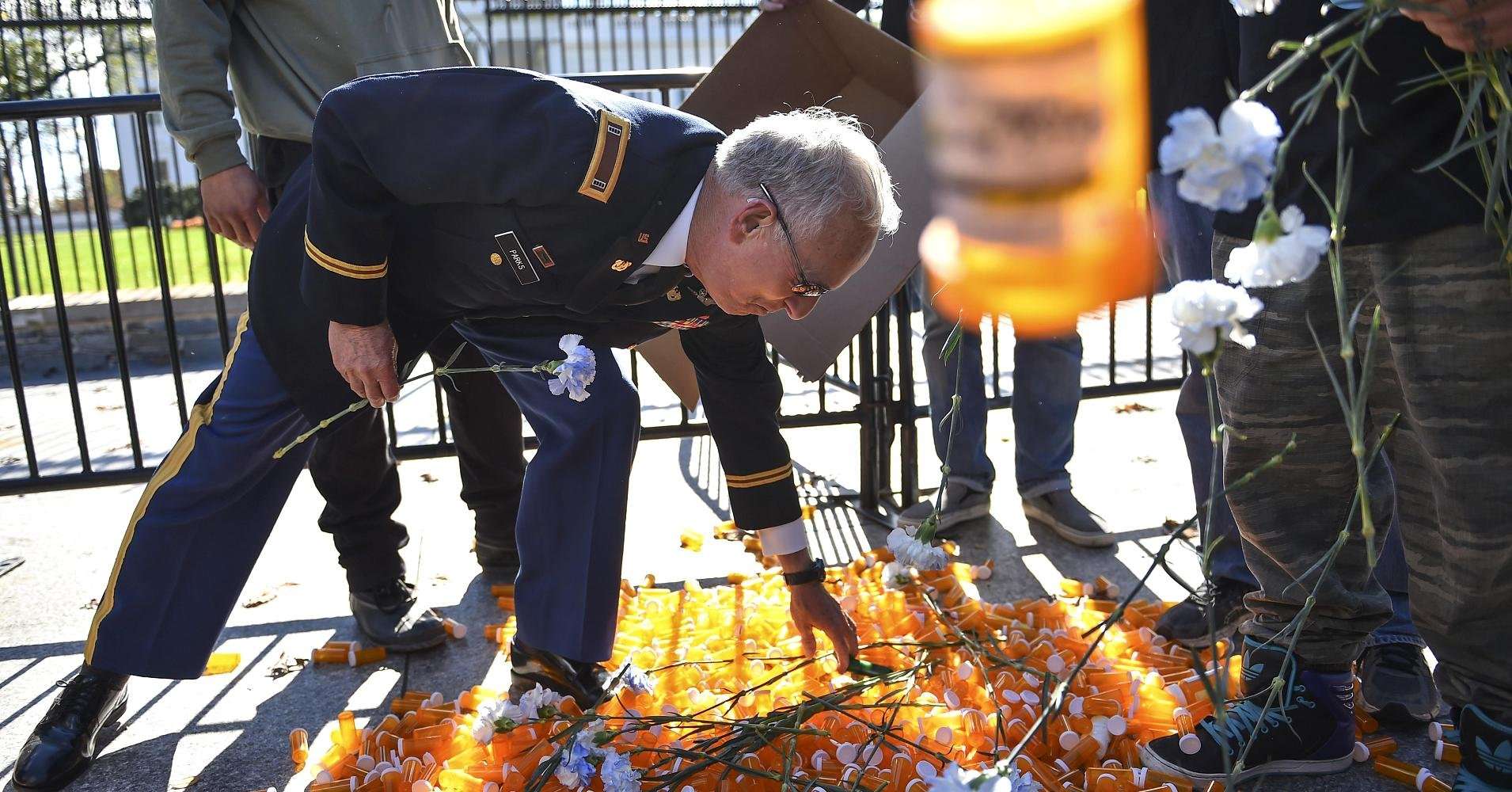Ryan Miller describes the year after his leg amputation as the best year of his life. He worked out. He traveled. He tanned. He was done with opioids.
After an explosively formed projectile destroyed his leg and damaged his stomach in Iraq, Miller had been caught in a vicious cycle of surgery and prescribed painkillers. The wounded Army infantry captain would have a surgery every few months, broken up by unsuccessful physical therapy.
"It wasn't just a pain, physical thing," Miller said. Physical dependence on opioids, coupled with pain from the injury, crushed Miller's spirit. "It just sucks. You feel like a prisoner."
The opioid crisis, which killed more than 42,000 Americans in 2016, continues to devastate the country. Doctors prescribe opioids for chronic pain, an ailment that is especially prevalent among military veterans. Of all the veterans returning from the Middle East, about 60 percent experience chronic pain.
A 2011 Veterans Affairs study found that veterans were twice as likely to die from an opioid overdose compared to the rest of the population. A 2014 study examined 2,500 soldiers after a deployment and found that 15 percent regularly used opioids. Many veterans also take benzodiazepines (antianxiety medication) for post-traumatic stress disorder. Benzodiazepines and opioids are both sedatives, and the combination is especially deadly.
The devastating toll opioids have taken on veterans has the VA scrambling to find alternative solutions. The VA enacted the Opioid Safety Initiative in 2013 and cut the number of veterans on opioids by almost a third. Although the initiative was enacted with good intentions, studies show the safest way to wean patients off opioids is in conjunction with alternative treatments. "This my-way-or-the-highway stuff is what really causes a lot of harm, and that's one of the things that I think we're running into a lot," said Michael Krawitz, an Air Force veteran and the executive director of Veterans for Medical Cannabis Access.
VA clinics have implemented practices like yoga, meditation and acupuncture as alternatives to opioids. But activists like Nick Etten, a former Navy SEAL and the founder and director of the Veterans Cannabis Project, believe medical marijuana can help. "We see cannabis not as a gateway drug," Etten said. "We see it as an exit path off opiates."

81308130 on February 7th, 2018 at 22:38 UTC »
Vet here, the only thing that kept me from suck starting my gun after coming back from Afghanistan was not the va perscribed pill cocktail (antianxiety, antipsychotics, sleep pills, etc) it was being able to roll up a humongous blunt at my own leisure. Weed kept me around and helped me out of the dark place I was in, alongside friends and family, physical fitness, and just learning to be a normal person again. I told my docs that I used cannabis, and they were okay with it, it was the binge drinking they were concerned about. Instead of prohibition of cannabis the govt should preach reduction of alcohol intake
Hoskins54 on February 7th, 2018 at 19:03 UTC »
Jeff Sessions can smoke a bunch of peens. I am tired of these old politicians who grew up during the reefer madness era promoting legislation bashing marijuana usage.
TooShiftyForYou on February 7th, 2018 at 19:00 UTC »
VA Secretary David Shulkin has admitted medical marijuana might help veterans, but he won't allow VA doctors to officially recommend marijuana until the federal law changes. And the stance from Attorney General Jeff Sessions — that regardless of state legalization efforts, the federal government should prosecute — could mean trouble for veterans using medical cannabis.
Pretty close-minded for Sessions not to consider alternative situations where cannabis can be beneficial.